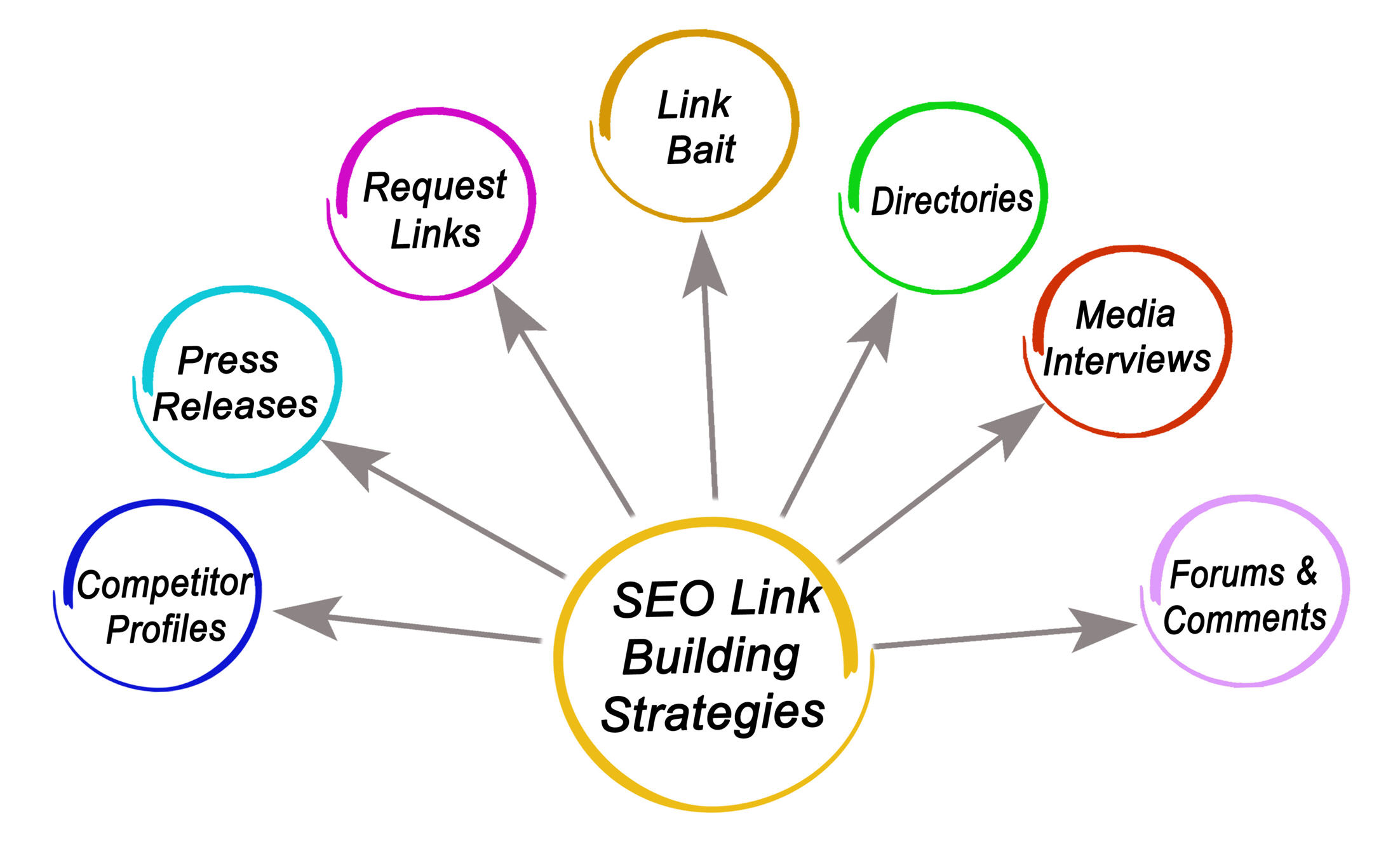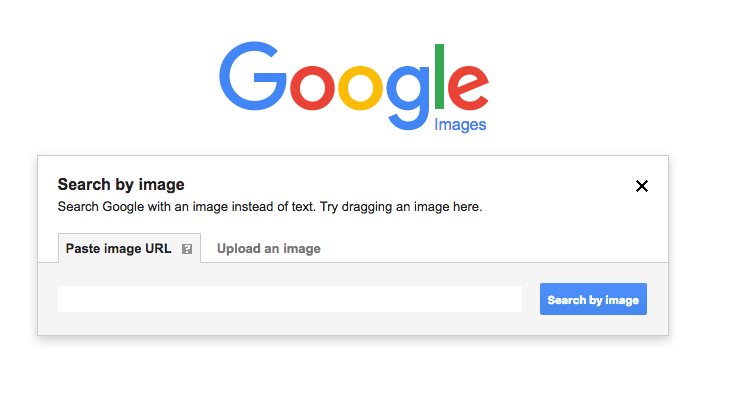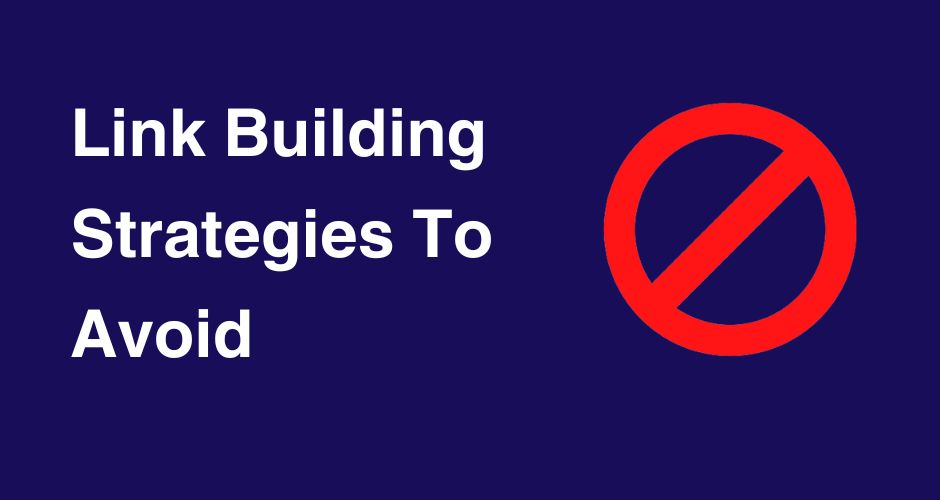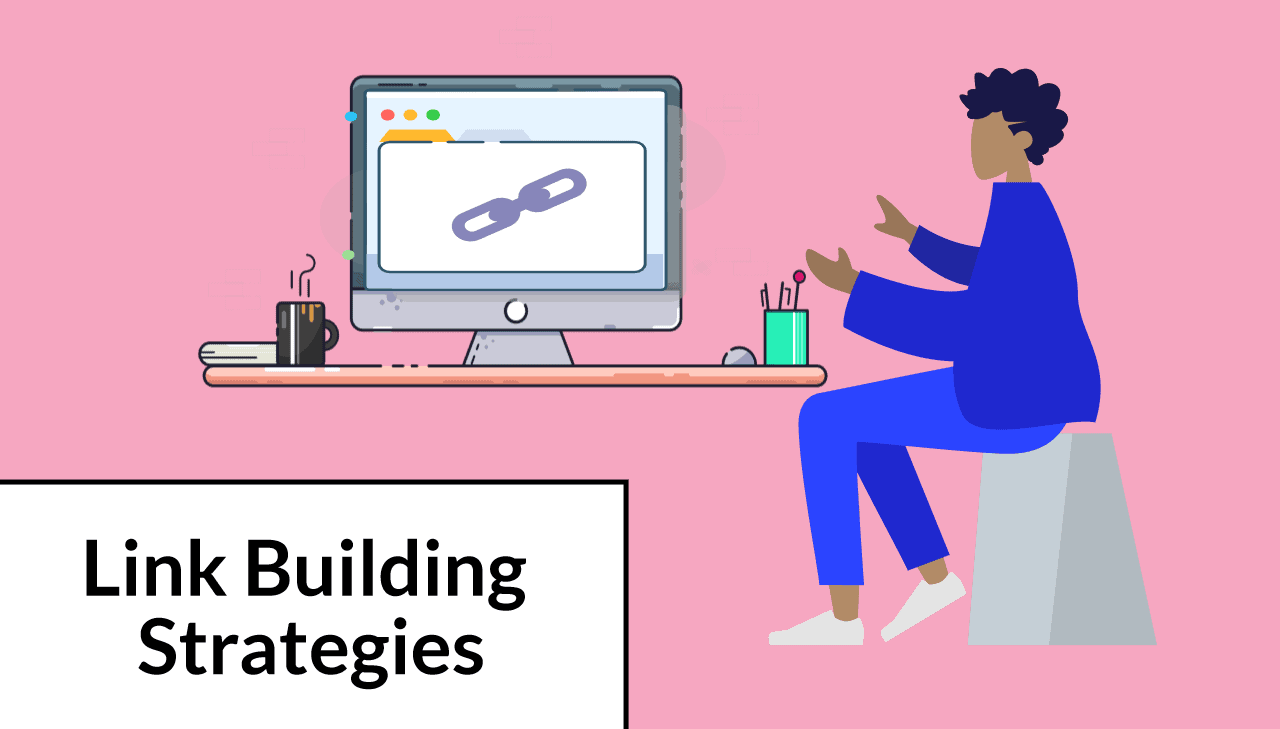Link building is an integral part of any successful SEO strategy. It involves acquiring hyperlinks from other websites to your own, with the aim of improving search engine rankings and driving organic traffic.
In this blog, we will explore tried and tested link-building tactics that can help you build high-quality backlinks and boost your online presence. These strategies have been proven to be effective in increasing visibility, driving more organic traffic, and improving search engine rankings.
What Is a Link Building Strategy?

Link building strategies are methods used by marketers and SEOs to encourage other websites to create links back to their own website.
For Example: Imagine you have a store that sells camping stuff online. You write a helpful article about staying safe while camping.
Other websites that talk about safety might put a link to your article on their site so their readers can learn more about camping safety from you. This helps your website show up better in search engines and increasing the good chance of gaining more customers.
Why Are Link Building Strategies So Important?

Link building helps websites rank higher in search results by getting other sites to link to yours. When someone searches online, search engines like Google consider various factors to determine which sites to display first.
One crucial factor is the number of links pointing to your site. If reputable camping sites link to your gear store, Google views your site as trustworthy and important, boosting its visibility in search results. Quality links also enhance user accessibility.
When respected sites link to yours, it indicates trust in your content, which builds user trust and increases site visits and product purchases.
How To Create Your Link Building Strategy?

Creating a link building strategy starts with understanding your website and audience.
- Analyze Your Site: Figure out what your site is good at and where it needs improvement. Decide if you need more backlinks or better keyword research.
- Know Your Audience: Learn about the people who visit your site. What are they interested in? How do they search for things?
- Audit Your Content: Find pages that other sites might want to link to. Focus on informative content, not just product pages.
- Identify Target Sites: Make a list of sites that match your content and audience. Prioritize them based on relevance and authority.
Remember, link building takes time, so set long-term goals for your strategy to see results.
Best Backlink Building Strategies

There are numerous ways to build links, but here are a few of the most successful methods.
Outreach

Outreach is a good strategy for getting links. It involves contacting website owners or bloggers to ask for a backlink. To succeed, research well and personalize your messages.
Here are some tips for successful outreach:
- Identify your target audience and find relevant sites or blogs in your industry.
- Write a convincing email explaining why your content fits their audience.
- Personalize each email to show you understand their site.
- If you don’t get a reply, send a friendly reminder.
- Be patient as link building through outreach takes time.
Broken Link Building

Broken link building is a great tactic. Find broken links on other sites. Replace with your link. The strategy helps both site owners. Broken links hurt user experience and SEO.
Start broken link building by:
- Find relevant sites in your industry.
- Use tools to find broken links on them.
- Create good content to replace the link.
Reach out politely to site owners. Offer value and explain benefits. Monitor progress and follow up as needed. It takes time but yields quality backlinks and boosts visibility. Help site owners while gaining backlinks for yourself.
Create Linkable Assets

Creating content that attracts backlinks is a powerful link building tactic. A linkable asset is valuable content that other sites want to link to.
To make linkable assets:
- Pick topics your audience finds valuable.
- Create detailed, well-researched content with solutions.
- Use visuals like infographics or videos for engagement.
- Share on social media and reach out via email.
- Track performance and update as necessary.
- Though time-consuming, creating linkable assets can boost backlinks and enhance your website’s authority in the industry.
Find Unlinked Brand Mentions

Unlinked mentions happen when other sites talk about you but don’t link back. This is a chance to get valuable links.
To find unlinked mentions:
- Search for your brand using tools or search engines.
- Find sites that mentioned you without linking back.
- Ask them nicely to add a link to your site.
- Explain how the link benefits readers.
- Keep track of your requests and follow up if needed.
Examine Competitor Backlinks

Analyzing your rivals’ backlinks helps find link building chances.
To check competitor backlinks:
- Find main industry competitors.
- Use tools to study their backlinks.
- Check if links are relevant and good.
- Contact linking sites offering your content.
- Explain your content’s value.
This process finds link opportunities, boosting visibility, SEO rankings, and online presence.
Make Your Website More Visible

Creating good content is key to making your website more visible and a good fit for other websites to link to. Make engaging posts regularly for users and search engines. Use keywords well in your posts to be found easily. Share posts on social media for more views and visitors. Have a strong SEO plan with link building strategies. Quality backlinks from trusted sites raise site credibility, leading to better visibility and traffic.
Keep Track Of Your Links

By monitoring your links, you can assess the effectiveness of your link building efforts and identify areas for improvement.
Utilize tools like Google Search Console or third-party software to track the performance of your backlinks. Keep an eye on the quality and relevance of the sites linking to you, as well as the anchor text used. Regularly check for any broken links or lost backlinks that need attention.
Monitoring your links allows you to adapt your strategy based on what is working and what isn’t. This proactive approach ensures that your link building campaign is always optimized for the best possible results.
Share Your Content on Forums

Engage in forums to improve link building. Share valuable content in relevant forums to attract the right audience.
Participate actively and offer insightful comments to establish authority and boost brand awareness. Share valuable content with a link back to your website for added value. Forums allow direct interaction for building organic links effectively.
Be consistent in forum engagement for industry visibility and credibility.
Try Link Reclamation

Link Reclamation is fixing broken links pointing to your website. Identify broken links using tools like Google Search Console or backlink analysis tools. Contact referring websites to update the links. This tactic recovers lost backlinks and strengthens your website’s backlink profile.
Managing links proactively boosts your website’s SEO performance. Implementing link reclamation helps regain backlinks, enhancing your site’s authority and credibility with search engines. Don’t ignore this strategy; it quickly improves your link building efforts.
Backlink Gap Analysis

A backlink gap analysis involves comparing the backlink profiles of your website and your competitors’ websites to identify opportunities for acquiring high-quality backlinks.
Steps to do a backlink check:
- Find main competitors.
- Use tools to compare links.
- Check number and quality of links.
- Find sites linking to rivals but not you.
- Contact these sites with your content.
- Show value and benefits of your content.
This check helps find link gaps, improves visibility, and boosts search rankings for your site.
Consider Guest Blogging

Guest blogging is a valuable link building tactic where you write content for another website in your niche, often in exchange for a backlink to your site. It helps in establishing your authority, expanding your reach to a new audience, and gaining valuable backlinks.
When considering guest blogging, ensure the platform is relevant to your niche and has a good domain authority. Write high-quality content with relevant anchor text to maximize the SEO benefits.
Guest posting on reputable sites can significantly boost your website’s credibility and organic traffic. It’s essential to follow Google’s guidelines and focus on creating value for the readers rather than just link building.
Guest blogging remains a popular and effective strategy in building quality backlinks and enhancing your online presence.
Focus on Passive Links

One good way to build links is by focusing on passive links.
Passive links are created naturally without active outreach. Producing valuable content for your audience can help you get passive backlinks.
These links are seen as more natural and can boost your site’s authority and search rankings. Keep creating engaging content to attract links naturally.
Passive links demonstrate your content’s value, enhancing your link building efforts. Monitor these links regularly to ensure they come from reliable sources and benefit your backlink profile.
Include Infographics

Infographics are a powerful tool in link building strategies. They visually represent data or information in an engaging way, making complex ideas easier to understand and share.
By including infographics in your content, you increase the likelihood of earning quality backlinks from other websites. Infographics are highly shareable on social media platforms, driving traffic back to your site and improving your link building campaign’s success.
When creating infographics, ensure they are relevant to your target audience and provide valuable insights. Including your website’s logo or URL on the infographic can also help with brand awareness and generating more referral traffic.
Infographics can be a great way to attract links naturally, as other websites may use them to enrich their own content, thus creating more opportunities for link building.
Target Resource Pages
When you create informative and original content, you attract pages seeking valuable resources to share your post.
This approach is particularly effective for content focused on beginner-level “how-to” and “what is” subjects.
Such posts are typically comprehensive, covering all essential aspects of a topic.
Once you’ve made your resourceful post, you can begin searching for websites with resource pages that might link to it.
Create Roundup Posts
Roundup posts offer valuable inspiration to readers, covering topics from money-saving tips to hair styling ideas. What makes them even more appealing is their shareability, much like many other link building strategies.
When crafting a roundup post, it’s beneficial to move beyond just linking to your own content and include links to other reputable websites. This approach can lead to those websites sharing your article with their audience, especially if your content is of high quality.
Consider Newsjacking

Newsjacking is a digital PR strategy used for link building. It involves spotting opportunities in the news and creating relevant content with your own insights, while also promoting your or your client’s work.
This tactic is effective because more people are likely searching for topics related to current news, which helps establish your expertise and trustworthiness, especially if credible sources are involved.
However, staying updated with industry news, podcasts, and roundups is crucial, as news stories typically have a short lifespan of 24-72 hours.
Newsjacking can be applied across various industries, such as finance and lifestyle. The key is to stay informed about current events and connect them to your content.
For instance, if your client sells mattresses and there’s news about the importance of quality sleep for mental health, you can create a post highlighting how their mattress impacts sleep quality.
To enhance your chances of earning links to your newsjacking content, outreach efforts can be directed towards news websites that would be interested in covering your story.
Create Surveys
Have you ever wondered how a small company’s survey goes viral? Surveys can be tricky because they take time and may not always yield relevant results. However, when they succeed, the rewards can be substantial.
Survey content is effective for several reasons:
- It provides genuinely unique and organic data.
- You can ensure that your questions directly relate to your brand’s offerings.
- Data can be segmented by demographics for more targeted insights.
Journalists are interested in covering stories that captivate their audience. Therefore, the main takeaway from your survey should be attention-grabbing.
Collaborate With Opinion Leaders
To improve link building, collaborating with opinion leaders, also known as link builders, is key. They have influence in different fields and can help get quality backlinks. Being linked with respected people not only boosts credibility but also increases visibility among your audience. Involving them in your content draws organic traffic and builds industry relationships.
Their support can introduce your site to new users and secure valuable backlinks. Partnering with influencers enhances link building and boosts brand reputation online. This strategy offers lasting benefits for link building efforts.
Release Data Studies
Releasing data studies is a powerful link building tactic. Conduct original research, present findings in a study to establish yourself as a thought leader. Promote studies on social media and reach out to relevant websites and influencers for quality backlinks.
Conduct City Studies
City studies in link building mean looking at link opportunities in different places. By researching cities online, you can find insights to make location-based content strategies. Knowing each city well helps customize link campaigns for local audiences. These studies show how to get links based on what people in various cities like.
Link Building Strategies To Avoid

Link building is an important part of search engine optimization (SEO), but it’s essential to use ethical and white-hat strategies to avoid penalties from search engines like Google.
Here are some link building strategies that you should avoid:
- Buying Links: Purchasing links or participating in link schemes where you exchange money for links is considered a violation of search engine guidelines and can result in severe penalties.
- Link Farms and Link Networks: These are networks of websites created solely for the purpose of exchanging links or selling links. Links from these sources are considered low-quality and can harm your website’s rankings.
- Automated Link Building Software: Using software or services that automatically create links on various websites or leave comments with links is considered spammy and can lead to penalties.
- Low-Quality Directory Submissions: Submitting your website to low-quality, spammy directories that accept any website without editorial review is generally a waste of time and can potentially harm your rankings.
- Comment Spam: Leaving comments on blogs or forums solely for the purpose of including a link back to your website is considered comment spam and should be avoided.
- Excessive Link Exchanges: Exchanging links with other websites excessively or participating in excessive link exchange programs can be seen as an attempt to manipulate rankings and should be avoided.
- Hidden Links: Hiding links on your website using techniques like tiny font sizes, positioning links off-screen, or using CSS to hide links is considered deceptive and can result in penalties.
- Cloaking and Redirects: Cloaking involves showing different content to search engines than what users see, while redirects can be used to send search engines and users to different pages. Both practices are considered deceptive and should be avoided.
FAQ’s:
Is Link Building Hard?
Link building can be challenging, as it requires a well-planned strategy, significant effort, and time investment.
However, with the right approach and consistent effort, link building can lead to significant success in terms of improved organic traffic, search engine rankings, and brand visibility.
Is Link Building Dead?
Link building is not dead. While search engines like Google continuously update their algorithms, high-quality backlinks remain an important ranking factor. However, link building strategies must adapt to changing SEO guidelines and focus on relevance, quality, and ethical practices.
How Do You Run a Link Building Strategy?
To run an effective link building strategy, focus on creating high-quality content that other websites will naturally want to link to. Reach out to relevant websites and bloggers in your industry, offering to write guest posts or suggesting partnership opportunities.
Building relationships and providing value is key to earning high-quality backlinks over time. Don’t forget to regularly analyze your competitors’ backlinks and use their strategies as inspiration for your own new content. After you create new content, refer to the Link Building Tool outreach process as needed to continue building links organically.
How Often Should You Review Your Link Building Strategy?
You should review your link building strategy every 3-6 months. This allows you to analyze what’s working, what’s not, and make adjustments based on the latest search engine updates and industry best practices.
How To Identify High-Quality Sites for Backlinking?
To identify high-quality sites for backlinking, look for websites with a strong domain authority, relevant content, and an active audience in your industry. Check for sites that are regularly updated, have a good reputation, and align with your brand values.
Are Guest Posts Still a Viable Link Building Strategy?
Yes, guest posting on relevant, high-authority websites is still a viable link building strategy. However, the focus should be on providing valuable, well-researched content rather than just trying to acquire backlinks. Quality over quantity is key for successful guest posting.
What Are The Most Effective Link Building Tactics For Improving SEO?
Some of the most effective link building tactics for improving SEO are creating high-quality content that naturally attracts links, guest posting on authoritative sites in your industry, and building relationships with influencers and other relevant websites for collaboration opportunities. The key is to focus on earning links through genuine, valuable efforts rather than manipulative tactics.
How Do You Create High-Quality Backlinks Through Link Building Tactics?
To create high-quality backlinks through link building tactics, focus on producing outstanding content that naturally attracts links from authoritative sites. Engage with other websites and influencers in your industry to build relationships and explore opportunities for guest posts, content collaborations, or other link-worthy partnerships.
Are There Any Ethical Concerns Associated With Certain Link Building Tactics?
Yes, there can be ethical concerns with certain link building tactics. Buying links, participating in link schemes, or using automated software to generate links is considered unethical according to Google’s webmaster guidelines and can lead to search engine penalties. It’s important to focus on earning high-quality links through legitimate means like creating valuable content and building relationships.
How To Avoid Penalties In Link Building Campaigns?
Here are some key strategies to avoid penalties in your link building campaigns:
- Focus on quality over quantity: Build links gradually and naturally from high-quality, relevant websites. Avoid link schemes or buying large quantities of low-quality links, as this can trigger penalties.
- Diversify your link profile: Aim for a natural mix of different types of links, like editorial links, mentions, and directory listings. Having too many links of one type, especially exact-match keyword anchor text links, looks unnatural.
- Prioritize relevance: Links from websites and pages that are topically related to yours are seen as higher quality in Google’s eyes. Irrelevant links from spammy or off-topic sites are more likely to be penalized.
- Use branded anchor text: Using your brand name, URL, and natural phrases as anchor text is safer than repeatedly using exact-match keywords. Over-optimized anchor text is a common spam signal.
- Avoid link exchanges and private blog networks (PBNs): Excessive reciprocal linking or using a network of sites to cross-link is seen as a link scheme and against Google’s guidelines. Stick to one-way links.
- Earn links with great content: Creating link-worthy content that naturally attracts editorial links is the safest long-term strategy. Avoid self-generated links in guest posts, forums, blog comments, etc. Use content marketing strategies and do outreach emails to the right people.
- Monitor your backlink profile: Use tools to regularly audit your link profile and look for any suspicious or low-quality links. Disavow spammy links to avoid “guilt by association.”
- Stay within Google’s guidelines: Familiarize yourself with Google’s Webmaster Guidelines and avoid any manipulative tactics like cloaking, sneaky redirects, or automatically generated content.
The key is to focus on gradually earning relevant, natural links from quality sites, rather than taking shortcuts or using schemes to quickly inflate your link profile. Prioritizing quality, relevance and diversity over quantity is the best way to build links that improve your rankings without risking penalties. Staying within Google’s guidelines and periodically auditing your links will help you maintain a clean, penalty-free link profile.
How Can Social Media Be Leveraged In Link Building Tactics?
Here are some ways social media can be leveraged in link building:
Firstly, sharing valuable content on social media can attract attention and engagement from your target audience. By creating and sharing informative and engaging content, you can increase the chances of others linking to it. When your content is shared on social media, it increases its reach and visibility, which can lead to more backlinks.
Secondly, engaging with your audience on social media can help build relationships and generate backlinks. By responding to comments, answering questions, and participating in conversations, you can establish yourself as an authority in your industry and increase the chances of others linking to your content.
Thirdly, social media platforms offer the opportunity to connect with influencers and industry leaders. By building relationships with influencers, you can increase the chances of them sharing and linking to your content. Collaborating with influencers on social media can also help increase your brand visibility and generate backlinks.
Conclusion
In conclusion, implementing effective link building strategies is crucial for enhancing your website’s visibility and authority.
By focusing on outreach, creating linkable assets, and leveraging guest blogging opportunities, you can significantly improve your backlink profile.
It’s essential to avoid unethical practices and prioritize quality over quantity when pursuing backlinks to mitigate the risk of penalties. Regularly reviewing and adjusting your link building strategy ensures its continued effectiveness in improving your SEO rankings.
To stay ahead in the digital landscape, consider collaborating with industry opinion leaders, producing data studies, and engaging in newsjacking to attract valuable links to your site.



